

Graphic: Ifakara Communications
LAUNCH: The journey to 70th anniversary officially kicks off
On 12 February 2026, Ifakara officially began the journey toward its 70th Anniversary, to be celebrated in November th…
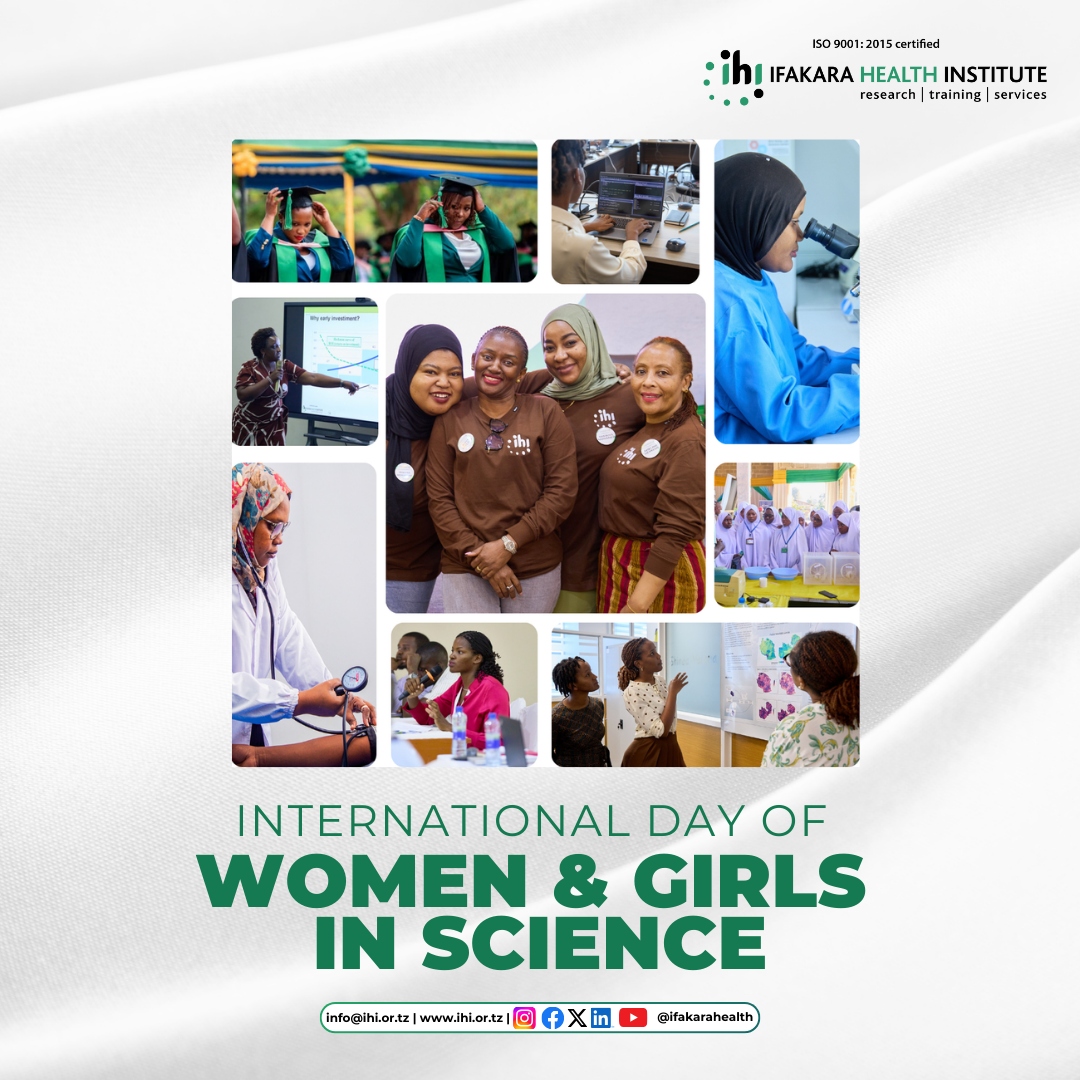
Graphic: Ifakara Communications
COMMEMORATION: International Day of Women and Girls in Science
On February 11, 2026, Ifakara Health Institute proudly joined the global community in celebrating the Internationa…
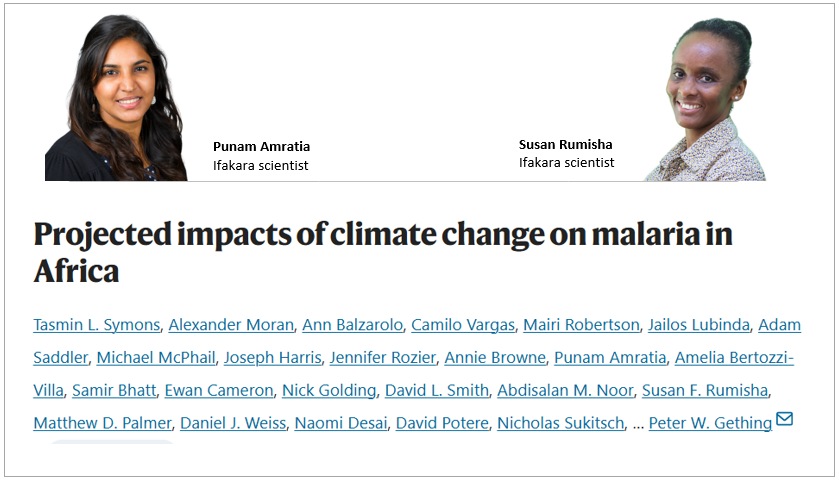
A snip from the Nature journal with insets of Ifakara Health Institute scientists Punam Amratia and Susan Rumisha who contributed to the study. GRAPHIC | IFAKARA Communications
MALARIA: Climate change could trigger millions more cases in Africa, scientists warn
Climate change could reverse hard-won gains against malaria in Africa, leading to hundreds of millions of additional cases and hundreds of thousands of more deaths over the next 25 years, according to a major new scie…
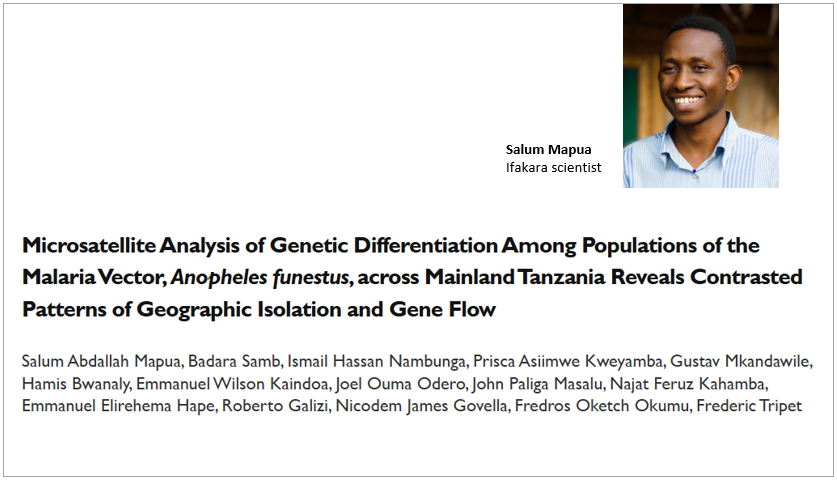
A snip from Parasites & Vectors with an inset of Ifakara Health Institute scientist Salum Abdallah Mapua, the lead author of the study. GRAPHIC | IFAKARA Communications
MOSQUITOES: Study shows how populations are connected across Tanzania
A new study led by scientists from the Ifakara Health Institute and partners in Europe and Africa has found that populations of one of Africa’s major malaria-carrying mosquitoes are genetically connected across …
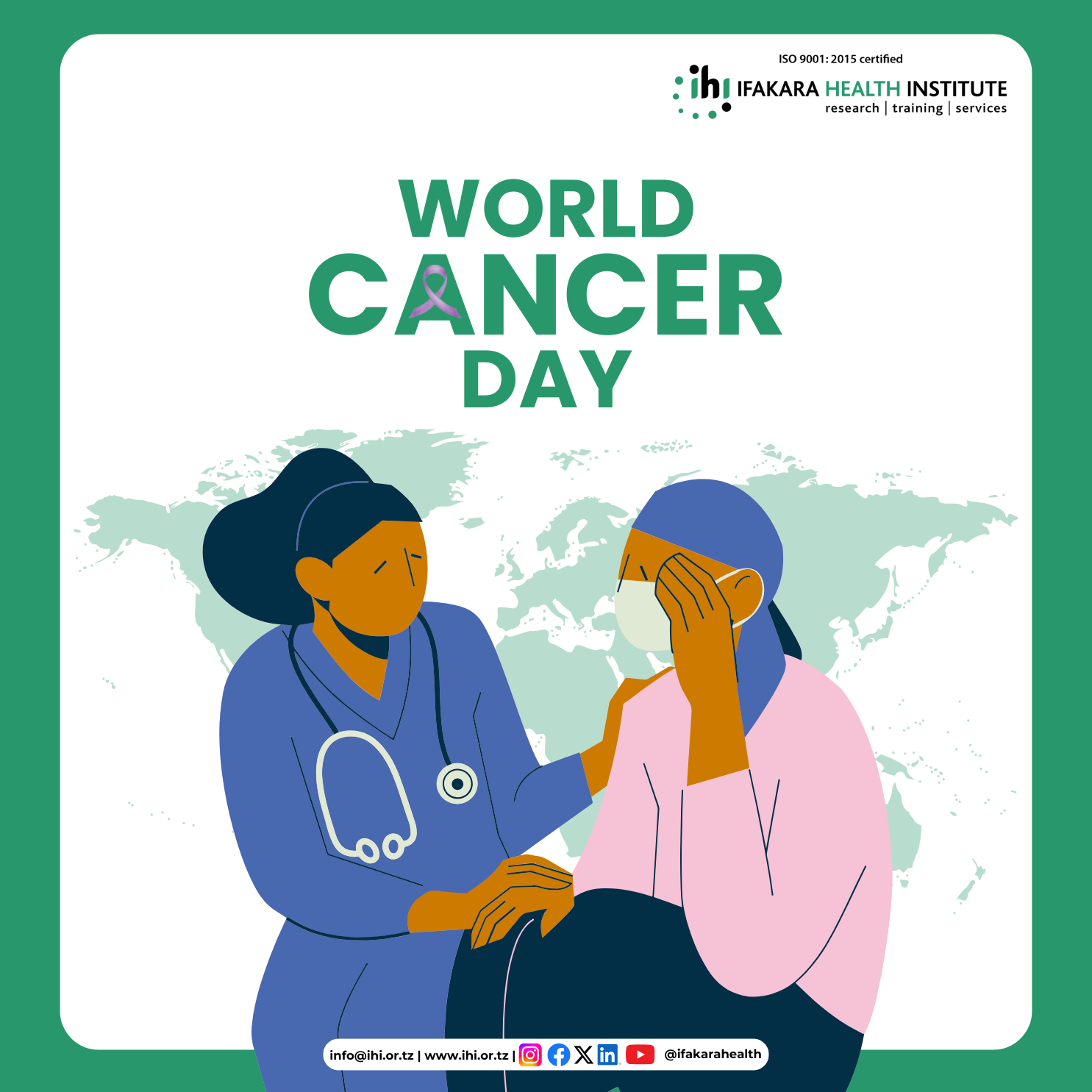
Graphic: Ifakara Communications
WORLD CANCER DAY 2026: United by Unique
On World Cancer Day, we join the World Health Organization in affirming that “cancer can be prevented, detected …

A snip from the Trials journal with insets of Ifakara Health Institute researchers Benno Mbeya and Samwel Lwambura, who contributed to the study. GRAPHIC | IFAKARA Communications
NEW HOPE: Shorter TB treatment on the horizon
Imagine battling a disease that requires you to take pills every day for six long months. For millions living with tuberculosis (TB), this is the reality.
But what if that…
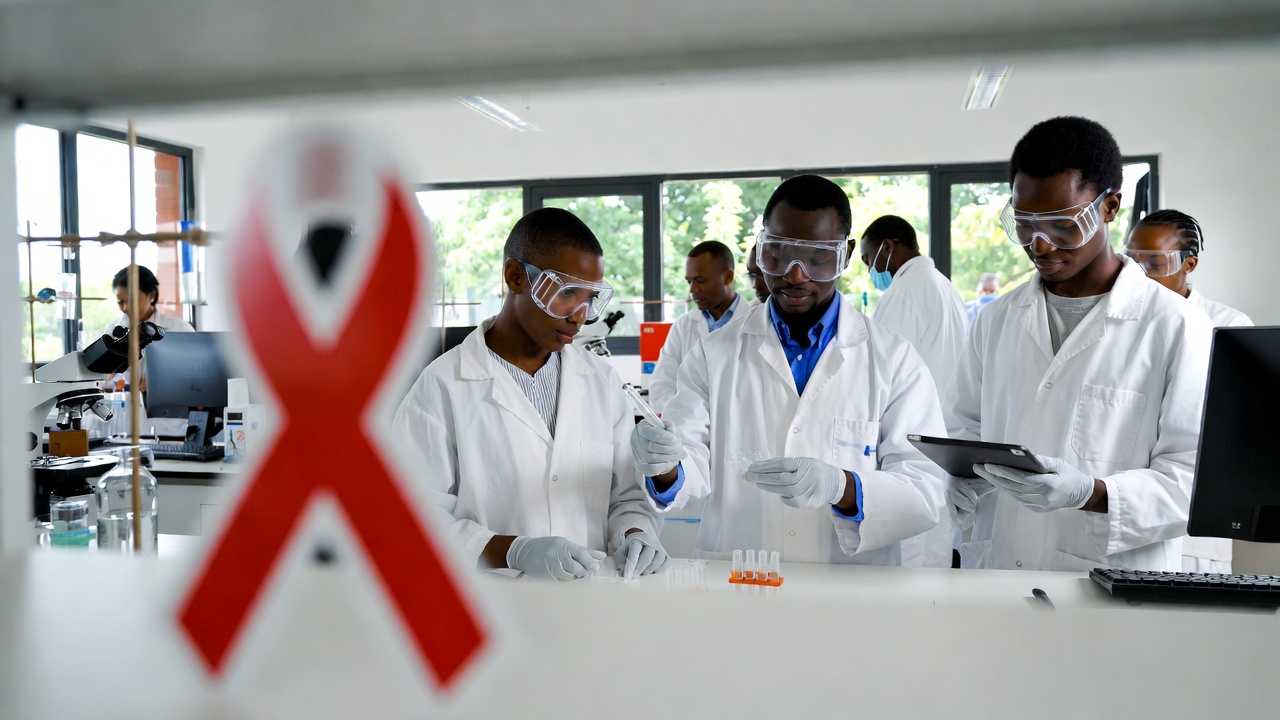
Stock Photo
HIV: Why new infections persist in Eastern, Southern Africa
A new study co-authored by scientists from Ifakara Health Institute has identified key reasons why new HIV infections continue to occur in Eastern and Southern Africa, despite years of progress in prevention and treat…
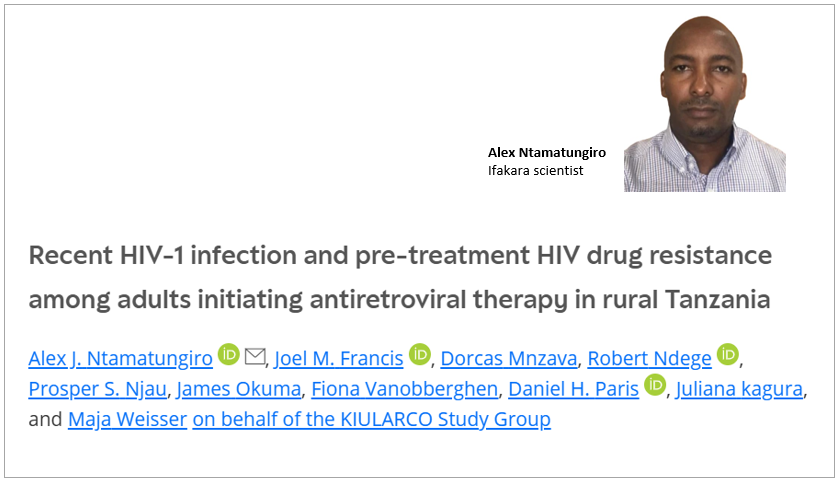
A snip from the International Journal of STD & AIDS journal with an inset of Ifakara Health Institute scientists Alex Ntamatungiro, the lead author of the study. GRAPHIC | IFAKARA Communications
HIV: Late diagnosis, drug resistance undermines disease control
A new study in rural Tanzania shows that most adults start HIV treatment long after they are first infected—and that some already carry HIV strains resistant to antiretroviral drugs before treatment begins. Thes…
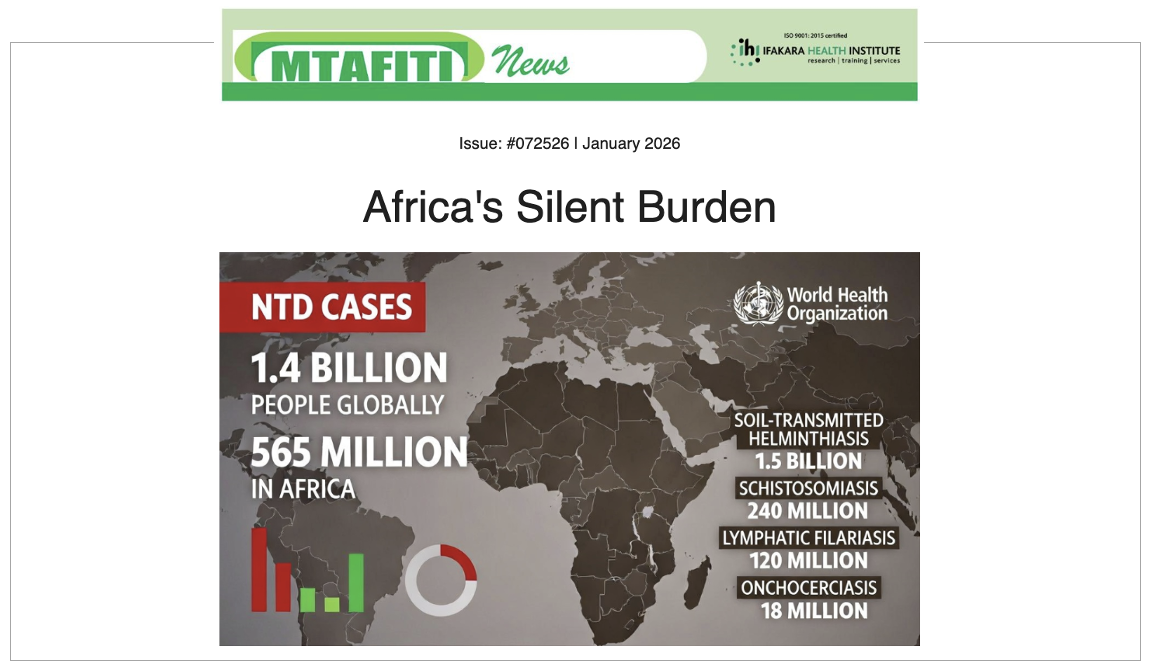
A snip from the Jan 2026 edition's featured story. GRAPHIC | IFAKARA Communications Jan. 31, 2026
MTAFITI: Africa's Silent Burden
"MTAFITI" - the monthly news and events round-up of Ifakara Health Institute - January 2026 edition is out.
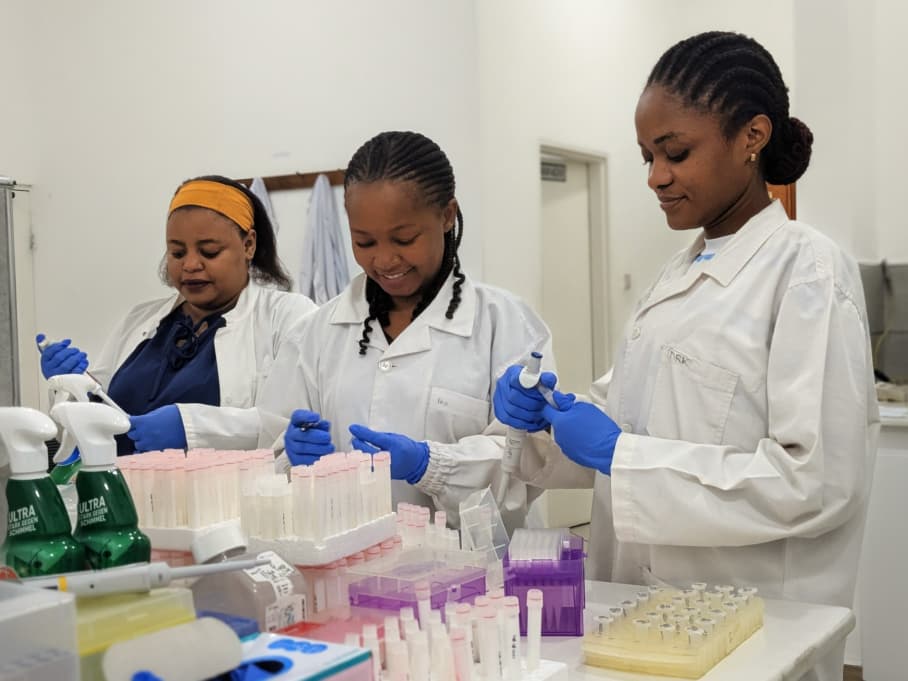
Photo by IFAKARA Communications
TRAINING: Building skills for better cervical cancer screening, care
Ifakara Health Institute, in partnership with St. Francis Regional Referral Hospital and …
